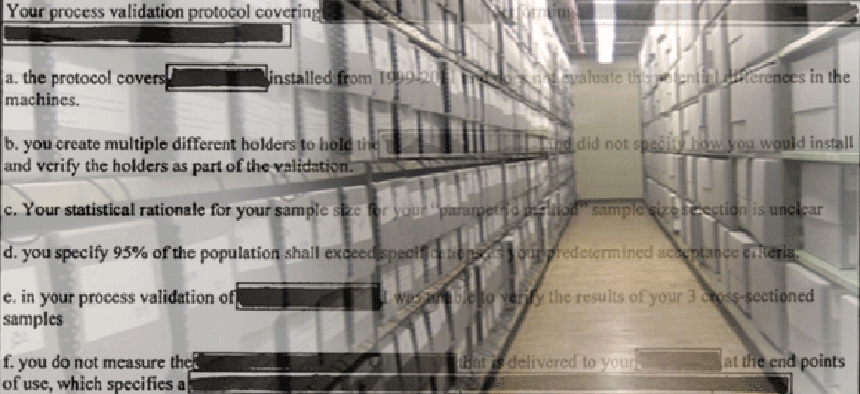How agencies can use technology to meet and exceed FOIA requests


Connecting state and local government leaders
Technology not only helps the public find information, but it can help agencies manage records better, respond faster and communicate with other agencies or departments.
A recent analysis by the Washington, D.C.-based Center for Effective Government found that the top 15 federal agencies, which process the most requests under the Freedom of Information Act, are still falling short of providing information in a timely manner. But greater technology investments could help agencies meet and exceed expectations in this area.
“Technology not only helps the requester -- the public -- when they’re looking for information, but it really can help the agency as well -- manage the records better, respond faster, communicate with other agencies or departments,” said Sean Moulton, the group’s director of open government policy.
That’s important because FOIA requests have been steadily rising every year. Rather than view FOIA as an “add-on requirement,” agencies need to set priorities for their investments by building more advanced tools and systems to help them find and share information faster, he said.
Moulton is co-author of the Making the Grade: Access to Information Scorecard 2014 report that rated the agencies in three areas: processing requests, establishing effective disclosure rules and policies and creating user-friendly websites.
Of the three areas, the report gave agency FOIA websites the highest marks, scoring them on several measures, including giving the public the ability to electronically file and track requests and appeals, proactively providing information in electronic reading rooms and posting full contact information (names, phone numbers and email addresses) for FOIA staff.
Right now, even failing or low-scoring agencies can easily improve their website functionality and services by making simple fixes. For example, agencies can create virtual libraries of frequently requested information, such as government contracts. They can even create and post documents specifically for the public that don’t contain confidential business or intellectual property information.
But Moulton said agencies should go even further.
Electronic records management systems can help agencies meet requests for all email communications between an agency and industry or individual. The National Archives and Records Administration (NARA), for example, has developed an automated approach called Capstone to help agencies better manage their emails. With Capstone, agencies can use their existing technologies to designate certain email accounts as permanent records depending on the sender’s job position or role. Meanwhile, other accounts can be deemed temporary and preserved for only a limited time.
The Obama administration is also pushing an idea for a centralized or shared federal FOIA portal. Though it is still in the early stages, Moulton said it could be similar to FOIAonline, which was launched jointly by NARA and the Environmental Protection Agency in October 2012 and currently has eight participating agencies.
FOIAonline allows the public to submit and track requests and file appeals. But it can also allow agencies to refer requests to another participating agency that may have a document or record in question, potentially eliminating or reducing delays in requests.
And a year ago, the Justice Department started rolling out a “FOIA tag,” which uses metadata to tag information that could help the public more easily find FOIA documents in Internet searches. Although this idea sounds promising, Moulton said he doesn’t think it is prevalent across the government yet. Plus, he added, this tagging may be more useful for agencies’ own internal document management.
Some agencies are using automatic screening tools to help them winnow down documents and records relevant to a request, Moulton said. Other tools can automatically redact some text within a document, which saves FOIA staff time and effort. Some of these services are offered by private niche players like AINS Inc., which provides a Web-based application called FOIAXpress.




